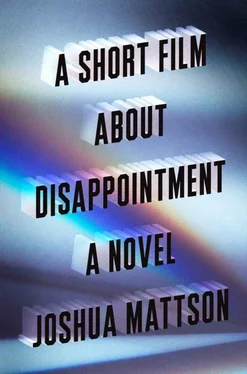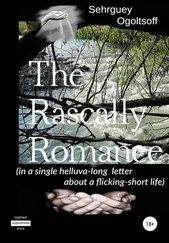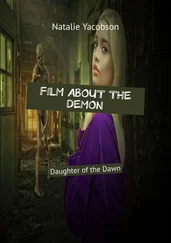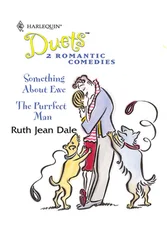Jonson said, Why would you give others a chance to get you back after all the nasty reviews?
I said, This job is a muselet: when it is twisted off, the cork will pop, the champagne of cinema will flow. Don’t you want to taste it?
Jonson said, Champagne, drunk alone, is cloying, carbonated, fermented grape juice.
I said, It gets you intoxicated.
He said, I have nightmares of her in bed with a man four inches taller than me. He’s poor and has a tattoo on his neck.
I said, Pay attention to my idea.
He said, Fine. What’s the film about?
I squatted to get eye to eye with Jonson.
I said, Altarpiece concerns a painter.
Jonson said, How about a sexy lady painter?
I said, Bellono is believed to be a great artist, maybe the best. As a youth, he was apprenticed to Master Vittororio. Bellono thinks painting is the worst job in the world. Why make a picture of something that doesn’t exist? Eating and sleeping are his chief pleasures.
Jonson said, Mine, too.
I said, A great day for Bellono would be to arise in the afternoon, eat a dish of jellied eels, a whole melon, blood sausages on black bread. Then, a nap for the digestion. Then, painting no more than thirty minutes. Dinner would be a hen stuffed with another hen, two ripe pears, the cheeks of a calf, polenta, mare’s milk.
Jonson said, I had a similar meal at Il Melananza. It was a tasting menu of fourteen courses and—
I said, Bellono sulks over his commissions. For his career, he has been a mercenary. He has to paint to eat. When his commissions are overdue, he executes improvements of Master Vittororio’s style. Bellono’s paintings sparkle in the mind’s eye. He is a bit sacrilegious. The Visitation with Elizabeth and Mary fidgeting. Joseph snoring off wine at the Nativity. The Agony in the Garden with the cringing lamb’s back turned on the scrawny olive trees. How the bishops squeal.
Jonson said, Say this Bellono has a wife, and he can’t find her. He discovers she’s been boinking the emperor. Then Bellono—
I said, Act two. Duke Giovanni, ailing, offers a colossal purse of gold to whoever may paint a triptych of himself, his wife, Andrea, and his brother, Enrico, to hang over his tomb in the family chapel. Bellono realizes if he wins the competition, he will never have to paint again. He can spend his days in snails and figs.
Jonson said, Lucretia and I had the loveliest figs in Umbria on our honeymoon. Now that I think of it, she disappeared for almost two hours one day while I was sleeping on the terrace of our rental. Could it be that I’ve been fooled this whole time?
I said, Plus, Vittororio can be passed, beaten, made irrelevant. Bellono has tired of hearing Vittororio’s name on the lips of the burgomasters, the fishwives and cardinals, the rag-and-bone men. Master Vittororio became known for polishing the work of the anonymous fresco artisans of the Roman villas found under ash. It wasn’t a crime. If one has eyes to see, one must see.
Jonson said, Maybe we could do a war picture.
I said, Bellono’s apprentice, Gelder, a moody teen who litters crusts and peels, is ordered to go in the street to gather information about Duke Giovanni. He finds nothing. Bellono is angered. Tantrums, depressions. Sulks and benders. Crockery thrown, servants bit, taverns menaced.
Jonson said, People don’t watch period pieces unless there’s killing.
I said, There’s going to be a killing in here if you don’t listen to me. A rumor in the city. Before the marriage, the duke’s brother, Enrico, courted Andrea, who became the duchess. Bellono has heard of poems declaimed by the duke’s brother in alehouses, famished kisses in the ducal orrery. Rumors of pistols cocked, wills scribbled. Enrico was overheard in the gardens, drunk as a bachelor uncle, bragging of the ankle he licked, slurring of living ivory.
Jonson said, Now we’re talking. Let’s have a shoot-out between Enrico and his brother. I can see it already. They’re shouting to one another, I loved you! No, I loved you! And then they shoot each other dead. How’s that for an ending?
I said, Gelder is sent to the palace to find what he may. He returns without useful information, having cupped a maid’s flabby breast, and seen an ape dance in a man’s clothes. Bellono brains Gelder with a palette for wasting his time.
Jonson said, Gelder’s plotting to steal the painter’s identity. He’s an archetypical sociopathic adolescent. In act three, Bellono’s wife kills him after he tries to strangle her.
I said, Bellono costumes Gelder and Beatrice, Bellono’s wife, as Enrico and Duchess Andrea. He forces the two to stare into the eyes of each other for hours, while he sketches their expressions. Gelder and Beatrice discover something in each other’s eyes. They run off with Bellono’s purse. He is forced to call on Duke Giovanni for funds.
Jonson said, Isn’t Duke Giovanni’s that pizza place down the street?
I said, What does that have to do with anything? Duke Giovanni receives Bellono on the jakes. Bad cioppino, a whipped cook. News of Bellono’s humiliation has floated on kestrels of laughter to the palace. The great suffer insults keenly, excessively, like sunburn. Bellono must perform as the petulant genius to save his reputation. He slaps Duke Giovanni. A story for the high table. Talent forgives much.
Jonson said, Let’s get a pie from the Duke. They have that Cricket Supreme.
I said, Bellono says, How shall I paint you, Your Grace? Giovanni says, Less than God but more than man. Bellono says, And your wife? Giovanni says, Less than man but more than God. Bellono says, And your brother? Giovanni says, The chamberlain has your gold.
Jonson said, How about Giovanni says, I can’t believe you betrayed me. And Enrico says, I’ll see you in hell, my brother.
He snapped his fingers.
He said, Maybe Enrico shoots Giovanni and he falls into the fountain. Or they duel with those floppy swords?
I said, On his way out, Bellono admires a Deposition done by Master Vittororio. He remembers it well. Bellono himself is in the foreground, about sixteen, a blemished Joseph of Arimathea.
Jonson said, And then Enrico falls to his knees and screams, What have I done?
I said, Duchess Andrea strolls by with Enrico. The rumors are true. Bellono lets himself see it on their faces. His painting of the nobles, and my film, will be called Altarpiece .
Jonson said, Why doesn’t Lucretia ping?
I said, What do you think about my film?
He said, It might have legs. Why won’t she ping?
An exercise of power, a lost Pinger, a squall of resentment, the romance of travel.
I said, She probably fell asleep, or her Pinger lost juice. Don’t smother her.
I handed Jonson the Atlas of Destroyed Architecture to page through while we waited for the pizza. The book was his. He examined his bookplate. EX LIBRIS H. JONSON V was written below an olive tree, with a satellite shining above. The conversation was lacking. I am not the type to say suck it up, man up, buck up, cowboy up, buckle up, or grow up. People ought to be free to pursue their utopian agendas.
Lucretia Jonson has a doctorate in art history, smokes cheroots, has visited every open country but six, has published two monographs, traps birds who dare land on her balcony, in defiance of biodiversity laws.
On the morning he met her, he’d made six hundred thousand dollars selling off stocks. Listing INRI, a manufacturer of plastic crowns. Pop siren Maquilla wore one in the stage show that was fined by the Hub Authority for extreme bad taste. Sales were robust, a famous magazine predicted a trend, Jonson sold. His modeling software had pointed him toward the industry.
Jonson does not know how advanced his mathematics are because he did not take a university course, hasn’t the vocabulary, doesn’t enjoy the topic, and got an exemption at the academy because he found the subject torturous. I must redact his suffocating anecdote about how he managed this. Jonson tells a story like it’s a pigeon hostage in his fist. He clubs stories and presents their stunned bodies to the listener.
Читать дальше












